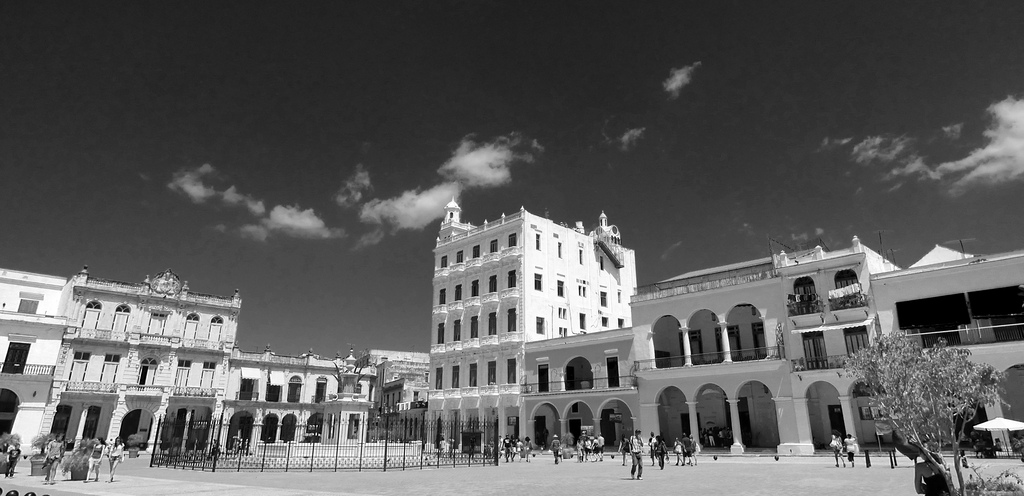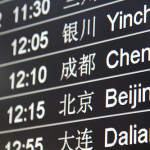A friend of mine recently inquired about how to travel to Cuba. I knew that travel restrictions had been relaxed, but I wasn’t exactly sure what that entailed. So I decided to look into it.
For decades, it’s been nearly impossible for any US citizen to travel to Cuba, unless you were approved for some sort of religious or educational license, for example. Traveling as a tourist was forbidden, specifically spending money or receiving gifts in Cuba.
Now, with US-Cuba relations warming up a bit, there has been a renewed sense of interest in our neighbor 90 miles to the south. Commercial airlines in the US were recently given the green light to resume flights to and from Cuba. Airlines are expected to resume service in autumn of 2016. But what does that mean for you?
Is it now okay to travel to Cuba on a tourist visa? Surprisingly, as I’m writing this in March 2016, the answer is still no. However, there are other ways you can still visit Cuba. Let me explain…
12 Ways You Can Travel to Cuba
As I mentioned earlier, for the past several decades you needed a specific license to visit Cuba. Those licenses were only approved under extremely strict circumstances by the US Department of Treasury’s Office of Foreign Assets Control (OFAC). Additionally, many of the restrictions from the original Cuban Assets Control Regulations (CACR), the primary enforcement mechanism of the Cuban embargo, are still in effect.
However, as of January, 26, 2016, the rules for obtaining licenses to travel to Cuba have changed. Rather than having to obtain a specific license, you can obtain a general license. So instead of OFAC scrutinizing each license request, it’s now up to you to determine whether or not your visit is allowed. Yup, you read that right. Let that sink in for a minute. As long as you think your trip fits within one of the 12 authorized categories below, you can essentially license yourself to travel to Cuba. No further permission from OFAC is required to engage in transactions covered by a general license.
Here are the 12 ways you can travel to Cuba:
- Visiting family
- Official business of the U.S. government, foreign governments, and certain intergovernmental organizations
- Journalistic activity
- Professional research and professional meetings
- Educational activities
- Religious activities
- Public performances, clinics, workshops, athletic and other competitions, and exhibitions.
- Support for the Cuban people
- Humanitarian projects
- Activities of private foundations or research or educational institutes
- Exportation, importation, or transmission of information or information materials
- Certain authorized export transactions
Some of these are pretty straightforward, but others like “support for the Cuban people” seem pretty vague. In fact, support for the Cuban people, also known as “people to people” travel, may be one of the better license options if you can’t realistically claim religious, educational, or journalistic activities.
Companies like InsightCuba provide all the services necessary (including visa paperwork) to conduct people to people travel. Better yet, they have been pre-approved by OFAC. InsightCuba builds itineraries that connect you (the traveler) to a Cuban guide or guides that take tourists to unique sights.
An example of one of InsightCuba’s tours include the 5 day/4 night Weekend in Havana package. Understand that prices hover right around $3,000 for this package, but that includes airfare, hotels, all meals, all Cuban ground transportation, and much more. Also understand that you will be with a guide and a group the entire time.
While this has made it easier for many people to travel to Cuba, there is still a lot to work out between the United States and Cuba before the travel and tourism flood gates are opened.
Keep in mind during this entire process that there is still paperwork to fill out and it’s still possible to violate the CACR (potentially resulting in a fine or jail time). In order to avoid potential hiccups, ensure you have a full-time schedule for your entire time in Cuba and keep your travel receipts for up to 5 years!
Good news for you Cuban cigar lovers, though. If you are able to obtain a general license for travel to Cuba, you are allowed to take back up to $100 worth of tobacco and alcohol. $100 may only get you half of a cigar, but it’s better than nothing!
For more information and more specific guidance from OFAC and the State Department, check out the links below.
- Treasury Department – Cuba FAQs
- Travel.state.gov – Entry & Exit Requirements for Cuba
- US Embassy in Havana website
- Treasury Department – Resource page on Cuba Sanctions
Will you be traveling to Cuba in the near future?







Leave a Reply